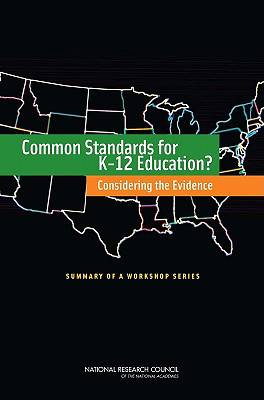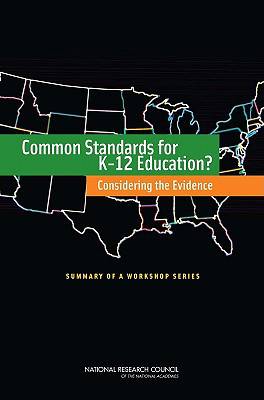
- Afhalen na 1 uur in een winkel met voorraad
- Gratis thuislevering in België vanaf € 30
- Ruim aanbod met 7 miljoen producten
- Afhalen na 1 uur in een winkel met voorraad
- Gratis thuislevering in België vanaf € 30
- Ruim aanbod met 7 miljoen producten
Zoeken
Common Standards for K-12 Education?
Considering the Evidence: Summary of a Workshop Series
National Research Council, Division of Behavioral and Social Sciences and Education, Center for Education, Committee on State Standards in Education a Workshop Series
Paperback | Engels
€ 26,95
+ 53 punten
Omschrijving
Standards-based accountability has become a central feature of the public education system in each state and is a theme of national discussions about how achievement for all students can be improved and achievement gaps narrowed. Questions remain, however, about the implementation of standards and accountability systems and about whether their potential benefits have been fully realized. Each of the 50 states has adopted its own set of standards, and though there is overlap among them, there is also wide variation in the ways states have devised and implemented their systems. This variety may have both advantages and disadvantages, but it nevertheless raises a fundamental question: Is the establishment of common K-12 academic standards, which states could voluntarily adopt, the logical next step for standards-based reform?
The goal of this book is not to answer the policy question of whether or not common standards would be a good idea. Rather, the book provides an objective look at the available evidence regarding the ways in which standards are currently functioning, the strategies that might be used to pursue common standards, and the issues that doing so might present.
Specificaties
Betrokkenen
- Auteur(s):
- Uitgeverij:
Inhoud
- Aantal bladzijden:
- 104
- Taal:
- Engels
Eigenschappen
- Productcode (EAN):
- 9780309125246
- Verschijningsdatum:
- 26/09/2008
- Uitvoering:
- Paperback
- Formaat:
- Trade paperback (VS)
- Afmetingen:
- 150 mm x 221 mm
- Gewicht:
- 181 g

Alleen bij Standaard Boekhandel
+ 53 punten op je klantenkaart van Standaard Boekhandel
Beoordelingen
We publiceren alleen reviews die voldoen aan de voorwaarden voor reviews. Bekijk onze voorwaarden voor reviews.











